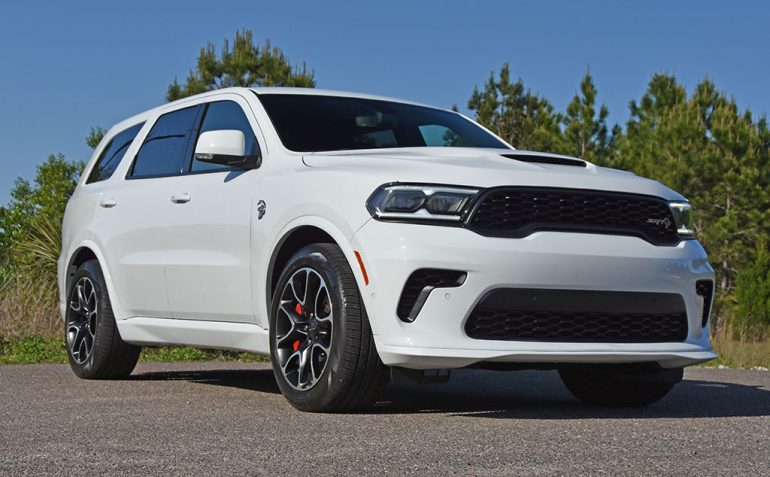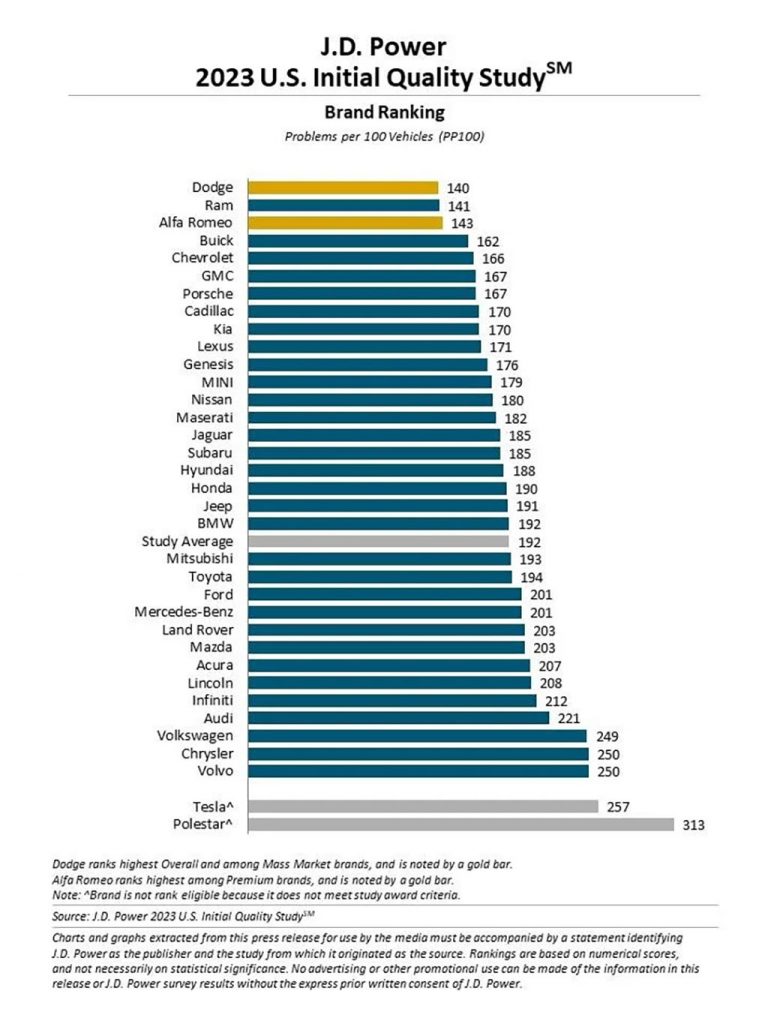
In the 2023 J.D. Power’s Initial Quality Study, it has been revealed that new vehicles are facing increased troubles, partially due to the inclusion of new technologies, particularly safety systems. According to Frank Hanley, the senior director of auto benchmarking at J.D. Power, the automotive industry is experiencing a wide range of quality problems, which is unprecedented in the history of the Initial Quality Study. While new vehicles offer exciting and advanced technology, they are not always meeting the expectations of owners.
The study discovered that the industry-wide average of problems per 100 vehicles rose by 12 to 192. This follows a previous increase of 18 problems per 100 vehicles (PP100) in the previous year’s study, which was attributed to the ongoing supply chain disruptions caused by the Covid-19 pandemic.

One of the notable findings of the study is the growing issues with advanced driver-assistance features like lane-departure warnings and automatic emergency braking. Additionally, there are widespread problems with the wireless charging pads that automakers have incorporated for drivers’ smartphones.
Interestingly, the survey revealed that the increase in problems this year is not solely linked to new technologies but also highlights difficulties faced by automakers in areas that were once considered basic, such as door handles. Some automakers, seemingly influenced by Tesla, have introduced high-tech door handles in their new models, which has become a “percolating problem area” according to the study. Electric vehicles (EVs) accounted for seven out of the ten worst offenders in this category.
The 2023 quality rankings were topped by three Stellantis brands — Dodge, Ram, and Alfa Romeo, while Tesla and Polestar, both EV manufacturers, landed at the bottom of the list with 257 and 313 problems per 100 vehicles, respectively.
Among U.S. automakers, General Motors performed well, with all four of its brands — Chevrolet, GMC, Buick, and Cadillac — making it to the top 10 brands for quality. However, Ford Motor did not fare as well, with both the Ford brand and Lincoln falling below average in this year’s rankings.
While Hyundai and Kia, both Korean automakers, performed above average, the renowned quality leader Toyota underperformed with 194 problems per 100 vehicles, slightly worse than the average.
The top mass-market brands for initial quality were Dodge, Ram, and Buick, while Alfa Romeo, Porsche, and Cadillac led the premium brands’ rankings.
It is worth noting that EV manufacturers like Tesla, Polestar, Lucid, and Rivian are not officially considered part of the study since they do not grant J.D. Power formal access to customer data, which is a legal requirement in 15 states. However, J.D. Power was able to calculate scores for Tesla and Polestar using data collected in other states. The sample sizes for Lucid and Rivian were considered too small for eligibility for rankings and awards but were included in the overall industry averages.
The annual initial quality rankings by J.D. Power are based on survey responses from new car buyers or lessees of current model-year vehicles who provide feedback during the first 90 days of ownership. This study holds significant importance within the auto industry. This year’s results were based on responses from over 93,000 participants.
J.D. Power also conducts separate surveys to evaluate brands based on long-term dependability, the appeal of new vehicle features, and customers’ purchasing experiences across different brands.

Mike Floyd is a finance executive by trade and a car enthusiast at heart. As a CFO with a keen eye for detail and strategy, Mike brings his analytical mindset to the automotive world, uncovering fresh insights and unique perspectives that go beyond the surface. His passion for cars—especially his favorite, the Porsche 911, fuels his contributions to Automotive Addicts, where he blends a love for performance and design with his professional precision. Whether he’s breaking down industry trends or spotlighting emerging innovations, Mike helps keep the site both sharp and forward-thinking.